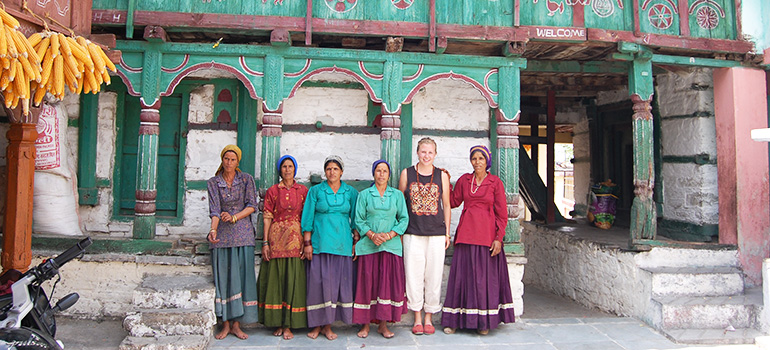A field course in India taught Joanna Lee the challenges of conservation in the developing world
Swimming in an elephant watering hole, spotting a rare leopard, eating hot roti fresh out of the fire? It sounds like an exotic holiday but for five forestry students these were just perks from an intensive month-long conservation field course in India.
“The most memorable moments were when we visited tribal villages and sat down with the village councils to discuss forestry, conservation and life in a developing country – through at least one translator,” says Joanna Lee, who is in her fourth year of the Natural Resource and Conservation program.
Until recently, conservation projects in India were managed by the country’s Ministry of Environment and Forests. Today there are a growing number of community-based initiatives.
“I wanted my students to see how conservation and good forest management can empower local people,” said Suzie Lavallee, who teaches in the Department of Forest and Conservation Sciences in the Faculty of Forestry.
Students visited the Periyar Tiger Reserve, Mannan Tribal Village, the Wildlife Institute of India and more, meeting with researchers and local people.
“I learned that there are a lot of impediments to conservation,” says Lee, who is originally from Revelstoke, B.C. “Many people are poor and surviving in the moment is often of higher importance than protecting the environment for future generations.”
The course was established through a well-formed partnership between the Faculty of Forestry and colleagues in India. Every year, researchers from the Indian Forest Service visit UBC and tour B.C.’s forests. They helped Lavallee set up an itinerary and connect with institutions across North and South India.

